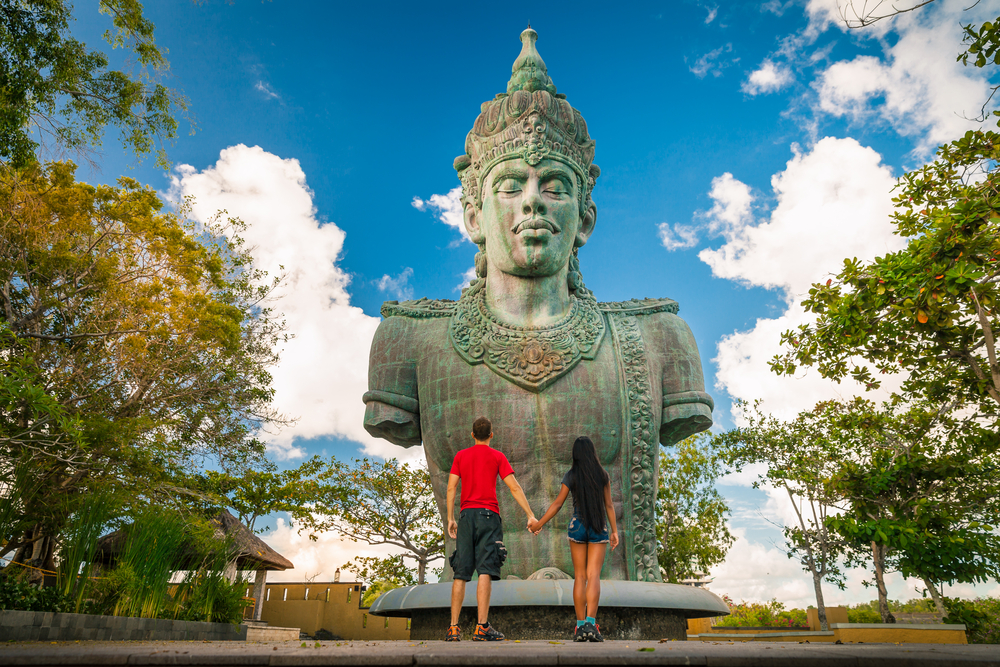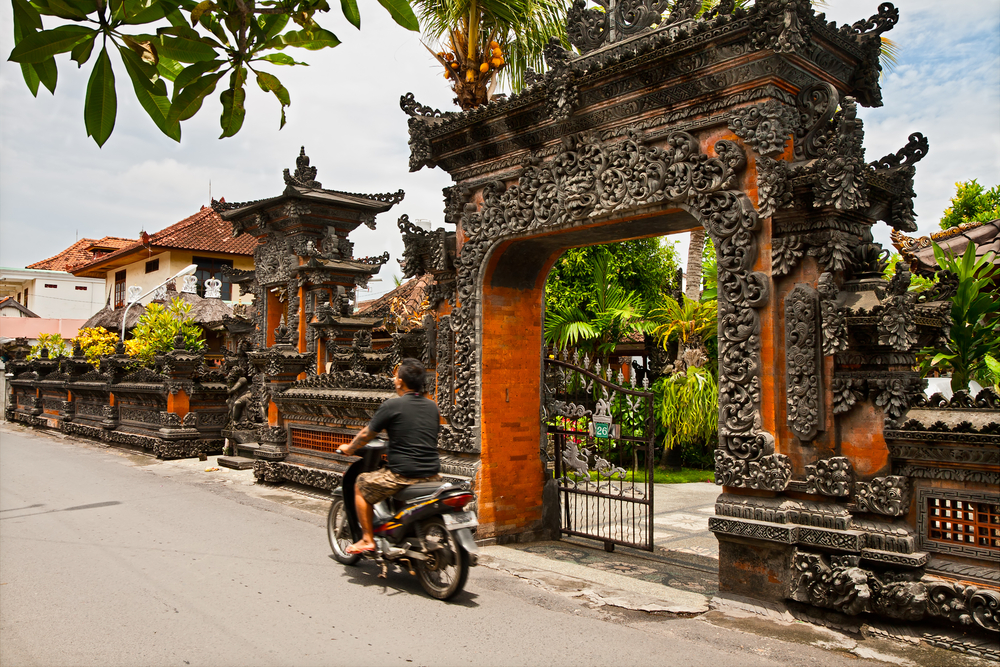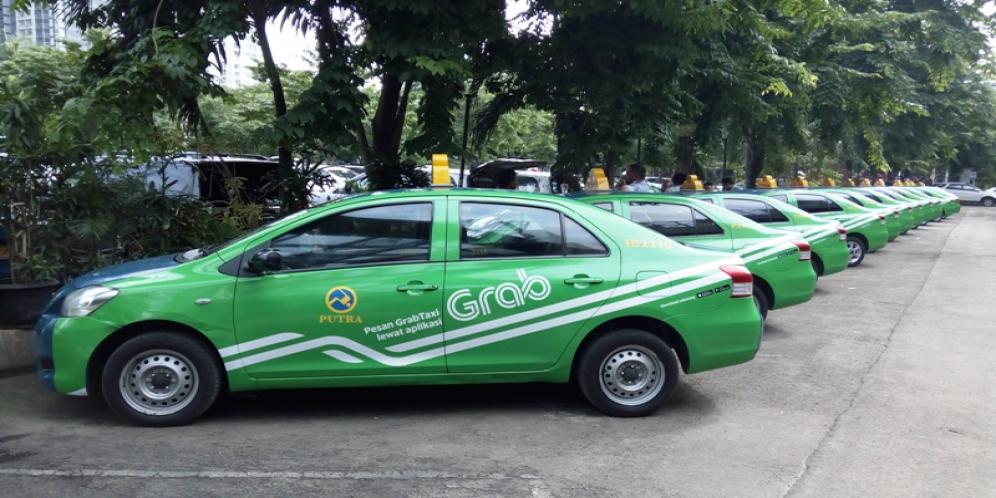Bali is well set up for receiving tourists, while its transport and accommodation can often be arranged at a moment’s notice. Most people you meet will speak good English, and tourism information points are never far away if you need help.
Having said that, some things are useful to know before you arrive and can save you from the stress of scrambling to find last-minute information.
We’ve put together a list of things to know about Bali before you arrive, so you’re free to kick back and enjoy the island once you get there.

Local and public transport in Bali
Taxis in Bali
Taxis can be a convenient way to get from A to B on Bali. They can also be pretty inexpensive if you can split the fare with a few friends. Taxi scams are common, however, and you could end up paying too much for your ride if you’re not careful.
Tips on travelling by taxi in Bali
Take a meter taxi. It’s easier to get a fair price for a taxi ride if you use the meter, rather than agreeing on a fixed price beforehand. Most taxis in Bali have meters, but finding a driver who is willing to use one can be a struggle. Many will claim that theirs is broken and that you must agree on a price upfront. This is, of course, a ploy to get more money out of you – they know full well that you’re unlikely to know how much the fare should be. Fortunately, there’s always the Bluebird Taxi Group, a company with a great reputation for honesty and reliability. Their cars are in good condition and their prices are reasonable, which can take a lot of the stress out of travel.
Remember to bargain. If you do take a fixed price taxi ride, it’s time to sharpen your haggling skills – you’ll have to barter to get a fair price.
Beware of fake taxis. Some dodgy taxi companies will take advantage of the tourist trust in Bluebird and will disguise their cabs to mimic those of the official taxis. They will then tell you that their meter is broken, before asking for a fixed price. To avoid this you can call Bluebird ahead of time to book a cab, and they will pick you up from right outside your hotel.

Motorbikes and ojeks in Bali
Motorbikes and scooters can be the best way to get around the island and give you the freedom to take off and cruise around Bali’s lesser-travelled dirt roads. Scooter rental typically starts at around $5 USD a day, and discounts can be gotten for longer rental periods. Indonesian law requires drivers to hold an International Driver’s License, but this is rarely enforced.

If you don’t feel like riding your own bike, taking an Ojek can be the perfect way to travel inexpensively. These are motorbike drivers who will take a passenger for a small fare, and are one of the cheapest ways to get around town.
When getting on a motorbike, always wear a helmet. Bali’s roads are busy, and are often narrow, potholed, and crowded with dogs, people, and other vehicles. Accidents are common and can be serious, so remember to wear the appropriate safety gear.
Grab (Bali’s Uber)
Grab is Bali’s version of Uber and works in exactly the same way. Simply key in your location and where you want to go, and a driver will be dispatched to pick you up. The app gives you a fixed price for your ride, so there’s no need to haggle with the driver, and the cost is lower than taking a taxi.

Grab is more readily available around busier areas like Kuta and Ubud, but drivers are forbidden to work in certain areas. Ask at your accommodation if you’re unsure – they’ll be happy to arrange a taxi if Grab isn’t possible.
Boats in Bali
There are several smaller islands off the coast of Bali, all of which are reachable by boat. There are many different options available, and vessels range from high-speed speedboats to cheaper, slower shuttles.
Hostels and travel agents are on almost every street in Bali’s busier areas, so arranging tickets couldn’t be simpler. Booking through a travel agent may cost a few dollars more, but they’ll arrange every step of your journey.

If you really want to pinch the pennies, you can always buy your ticket directly from the harbour. It is usually possible to find a slightly better price for your ticket this way, and you can almost always find transport for the same day.
Airports in Bali
Bali houses Indonesia’s third-busiest international airport, Ngurah Rai (Denpasar) International Airport. This is likely to be your first stop in Bali, so knowing where it is (and how to get out of it) is important.
Location: Ngurah Rai is located in on the South of the island. It is 13 km from Denpasar and just 2.5km from Kuta.
Closing time: Ngurah Rai is an international airport, and as such operates for 24 hours a day.
Transport out: Arranging transport out of the airport is easy, and there will be dozens of taxi drivers waiting to bombard you when you arrive. You can visit the official taxi counter in the arrivals hall to secure a ride, or you can order a Grab from nearby. There is also car rental available at the airport.
Closures: Ngurah Airport closed briefly in November last year due to the eruption of Mount Agung, the ash clouds from which led to the cancellation of dozens of flights. This is a rare occurrence, however, and airport closure isn’t something you should worry about during your stay.

Health and safety in Bali
Bali Belly
‘Bali Belly’ (king of the stomach upset) is common on the island and can put a dampener on your stay. To minimize your risk of an upset stomach, follow these simple rules:
Don’t drink the tap water. The tap water in Bali is not safe to drink, and you will almost certainly get very sick if you do. Only drink bottled, boiled, and purified water during your stay, to avoid ruining your trip!
Be selective about where you eat. Absolutely eat at local restaurants when in Bali. This is often where the tastiest food (and lowest prices) can be found. But be smart about it, and swerve the places that are routinely empty. Word travels, and there’s a reason no-one’s eating there. If a place has a good reputation for cleanliness, it will usually have a steady stream of customers. If you’re unsure, follow the locals – they know all the best spots, after all.

Watch out for ice. Be careful about ordering drinks with ice. It can be hard to spot ice that is made with unpurified tap water, and this can make you sick. If ice is cloudy looking, avoid it. A good rule of thumb is to look for a hole in your ice cubes – this suggests that the ice has been made by machine, which usually follows good hygiene practices.
Beware of salads. Raw vegetables can be risky, as there is no way of knowing if they have been rinsed in tap water. If in doubt, try to stick to the salad you prepare yourself.
Vaccinations before going to Bali
There are several vaccinations you will need to get if you are planning a trip to Bali:
Rabies. With the thousands of dogs living on Bali, rabies is something you need to be mindful of during your trip to the island. The disease is mainly spread through dog and monkey bites and is lethal. If you are bitten you will need to seek medical treatment whether you have had the vaccine or not, but getting the shot before you go gives you a larger window of time to get to a hospital.

Hepatitis A and B. Hepatitis A (spread through contaminated food and water) and Hepatitis B (spread through bodily fluids) are both present in Bali. These diseases are prevalent in many countries throughout the world, so it is a good idea to get these shots anyway if you are a traveller.
Typhoid. Typhoid is transmitted through contaminated food and water and causes fever, nausea, diarrhoea, constipation, headache, and muscle ache. This illness can become serious if not treated properly, so it is best to get the vaccination before you go.
Tetanus. Tetanus is present globally and is spread when bacteria enter a cut or graze. This disease affects the central nervous system and can be fatal if not treated immediately
Yellow Fever. There is no Yellow Fever in Bali, but you are required to get the vaccination if you are coming from a country where the disease is prevalent.
Diseases in Bali
There are some mosquito-borne diseases present in Bali. It is important to take preventative measures against infection during your stay.
Dengue Fever. Dengue is common in Indonesia. This viral infection that may begin with nausea, fever, and abdominal pain. There is currently no vaccination available, so preventing mosquito bites is the best way to prevent infection.
Malaria. Much of Bali is malaria free; however, the disease is still present in some rural areas. Take anti-malarial medication if you are worried, and be vigilant about your mosquito repellent.
Zika Virus. There are occasional outbreaks of Zika Virus in Indonesia, which can be particularly dangerous for unborn babies. Moms-to-be should be extra careful about preventing mosquito bites on the island.
Japanese Encephalitis. Japanese Encephalitis is another disease that attacks the central nervous system, and it can be fatal. It is most common during the rainy season, between November and April, so be extra careful if you are travelling at this time of year. Fortunately, vaccinations for this disease are available in some countries – check with your doctor before you go.

Buy an effective mosquito repellent, and keep your arms and legs covered with loose-fitting clothing. Use mosquito coils to keep the bugs away in the evenings, and always sleep under a mosquito net.
Currency exchange scams in Bali
Currency exchange shops are everywhere in Bali’s main tourist areas, and the chances are you will use their services at some point during your trip. But beware of scams when you do, as these shops are notorious for short-changing tourists. They will often find ways of distracting you so they can hide bills, giving you less money than you’re owed.
Be wary of anywhere offering very high exchange rates – if it looks too good to be true, it probably is.
